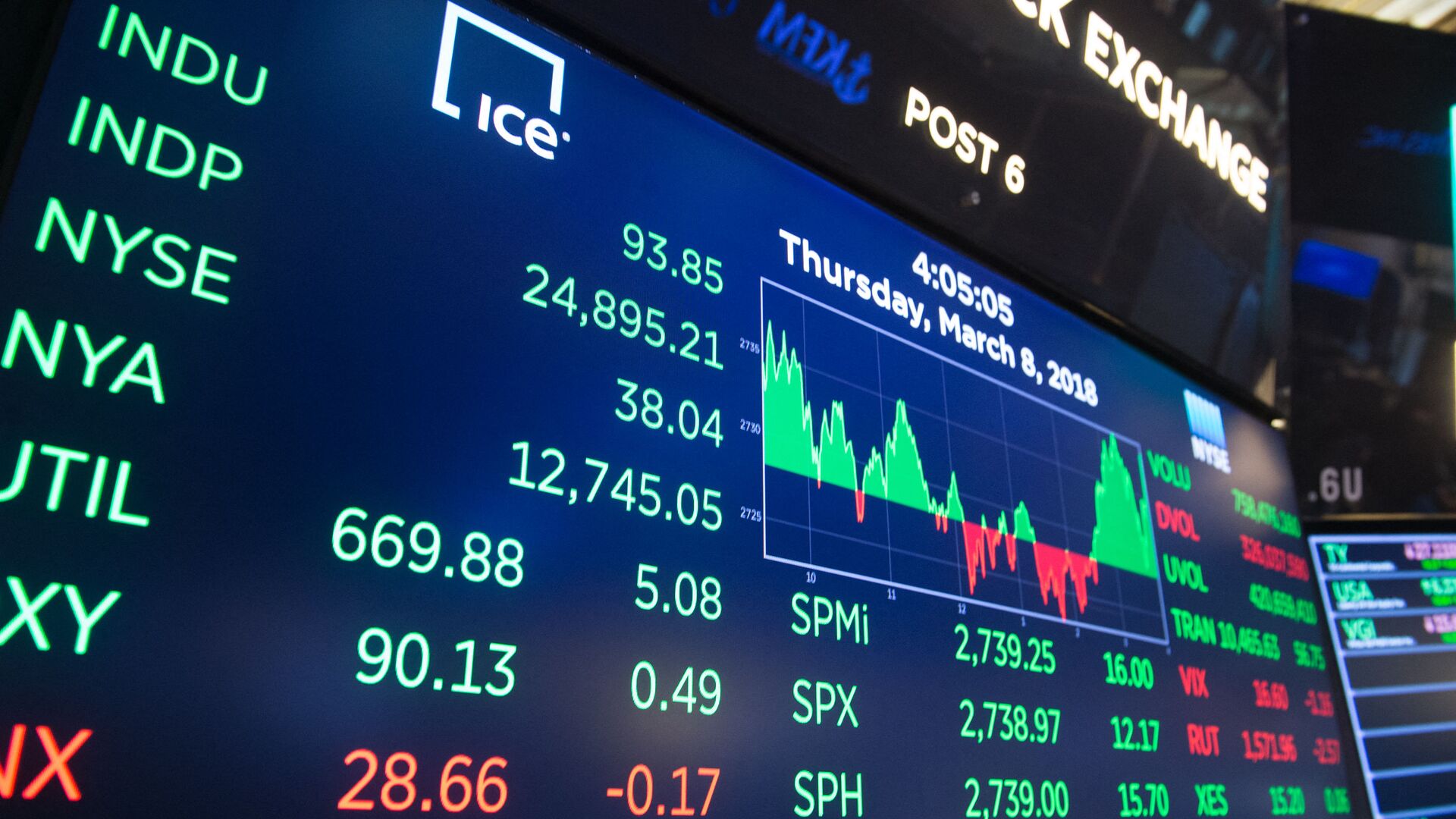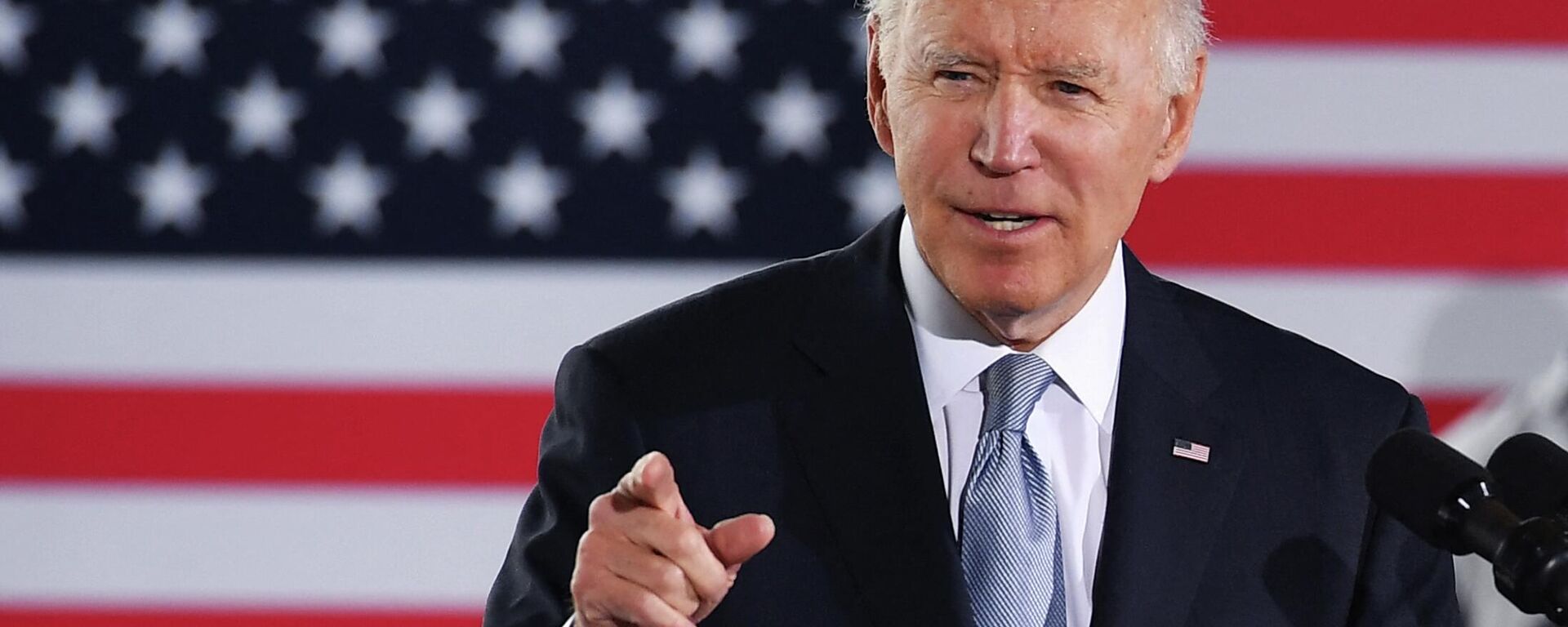https://sputnikglobe.com/20220514/is-it-2008-all-over-again-global-stock-markets-show-longest-decline-since-last-economic-crisis-1095510781.html
Is It 2008 All Over Again? Global Stock Markets Show Longest Decline Since Last Economic Crisis
Is It 2008 All Over Again? Global Stock Markets Show Longest Decline Since Last Economic Crisis
Sputnik International
The nascent economic resurgence that was detected during 2021 as countries began to exit pandemic lockdowns was undercut around November as the first evidence... 14.05.2022, Sputnik International
2022-05-14T12:45+0000
2022-05-14T12:45+0000
2022-05-14T12:46+0000
business
world
economic crisis
https://cdn1.img.sputnikglobe.com/img/07e5/03/0a/1082310177_0:0:3000:1688_1920x0_80_0_0_cc61358957045abe4e1ecc0ea57a7e51.jpg
Global stock prices have generally been in decline for around 19 weeks now – the longest negative trend since the economic crisis that erupted in 2008.The FTSE All-World index, a benchmark of over 3,100 companies in almost 50 countries, has been falling for 19 weeks, with a brief period of growth in March. Over this period, the FTSE All-World lost 16.49%, stopping short of formally falling into a bearish trend, which requires a 20% decline since the last significant high.In the middle of 2008, the FTSE All-World fell for 39 consecutive weeks starting, on 1 May.The S&P index, which tracks the performance of the companies listed on the US stock markets, showed similar results with 19 weeks in the red and 16.11% lost throughout the period. The Nasdaq Composite benchmark of US tech companies' market value fared notably worse, with 26.48% lost over the course of a 25-week-long drop.The Asian markets' benchmark, Shanghai CSI 300 index, has been gradually losing value since the beginning of 2021 losing around 31% since the peak achieved on 10 February 2021.Just like the FTSE All-World index, the STOXX Europe 600 experienced a brief surge in March followed by a significant drop throughout April. However, the European stocks' index won back 3.62% in just two last days of this week, which became a stronger rebound from the fall than in the US or global indices seen on Friday.Inflation, COVID in China, High Interest RatesThe global stock markets are currently under all sorts of pressure. Despite the global economies mostly putting lockdowns behind, they all face the prospect of decades-high inflation evaporating what little growth they managed to achieve during an economic rebound in 2021.Governments' measures to combat inflation are pressuring them further down – with interest rates being on the rise in the US, UK and Europe and the state bond yields following them, investors are shifting their funds from riskier stocks to more reliable, high-earning bonds. The share sell-off pushed equity prices further down and so far the increase to interest rates has resulted in only a mild reduction to inflation levels.Global instability has also exerted pressure on the stock markets. One factor is China's combat against new COVID-19 pandemic hotspots in the country, which Beijing fights massive lockdowns in cities that have brought economic activity there to a halt.In these conditions even the Friday rebound of the stock markets did not prompt the economists to issue a positive forecast. Matt Stucky, a portfolio manager at Northwestern Mutual Wealth Management, told the FT that it was impossible to make a reliable forecast at these levels of instability.The global stocks is not the only commodity that is rapidly falling amid the uncertainties created by the inflation and government policies. Practically the entire cryptocurrency market was in the red in recent weeks too, despite some of the professional investors viewing them as a safe harbour against inflation. The negative trend affected even the so-called stable coins – digital tokens tied to the value of dollar or another hard cash currency. Namely, the value of terraUSD and Luna tokens was washed away recently, leaving their investors with next to nothing, despite being considered US dollar-tied stable coins.Let's stay in touch no matter what! Follow our Telegram channel to get all the latest news: https://t.me/sputniknewsus
https://sputnikglobe.com/20220510/us-president-biden-unveils-plan-to-fight-inflation-1095394238.html
Sputnik International
feedback@sputniknews.com
+74956456601
MIA „Rosiya Segodnya“
2022
Tim Korso
https://cdn1.img.sputnikglobe.com/img/07e6/03/0d/1093831826_0:0:216:216_100x100_80_0_0_e3f43a960af0c6c99f7eb8ccbf5f812c.jpg
Tim Korso
https://cdn1.img.sputnikglobe.com/img/07e6/03/0d/1093831826_0:0:216:216_100x100_80_0_0_e3f43a960af0c6c99f7eb8ccbf5f812c.jpg
News
en_EN
Sputnik International
feedback@sputniknews.com
+74956456601
MIA „Rosiya Segodnya“
Sputnik International
feedback@sputniknews.com
+74956456601
MIA „Rosiya Segodnya“
Tim Korso
https://cdn1.img.sputnikglobe.com/img/07e6/03/0d/1093831826_0:0:216:216_100x100_80_0_0_e3f43a960af0c6c99f7eb8ccbf5f812c.jpg
business, economic crisis
business, economic crisis
Is It 2008 All Over Again? Global Stock Markets Show Longest Decline Since Last Economic Crisis
12:45 GMT 14.05.2022 (Updated: 12:46 GMT 14.05.2022) The nascent economic resurgence that was detected during 2021 as countries began to exit pandemic lockdowns was undercut around November as the first evidence of decades-high inflation levels emerged around the world.
Global stock prices have generally been in decline for around 19 weeks now – the longest negative trend since the economic crisis that erupted in 2008.
The FTSE All-World index, a benchmark of over 3,100 companies in almost 50 countries, has been falling for 19 weeks, with a brief period of growth in March. Over this period, the FTSE All-World lost 16.49%, stopping short of formally falling into a bearish trend, which requires a 20% decline since the last significant high.
In the middle of 2008, the FTSE All-World fell for 39 consecutive weeks starting, on 1 May.
The S&P index, which tracks the performance of the companies listed on the US stock markets, showed similar results with 19 weeks in the red and 16.11% lost throughout the period. The Nasdaq Composite benchmark of US tech companies' market value fared notably worse, with 26.48% lost over the course of a 25-week-long drop.
The Asian markets' benchmark, Shanghai CSI 300 index, has been gradually losing value since the beginning of 2021 losing around 31% since the peak achieved on 10 February 2021.
Just like the FTSE All-World index, the STOXX Europe 600 experienced a brief surge in March followed by a significant drop throughout April. However, the
European stocks' index won back 3.62% in just two last days of this week, which became a stronger rebound from the fall than in the US or global indices seen on Friday.
Inflation, COVID in China, High Interest Rates
The global stock markets are currently under all sorts of pressure. Despite the global economies mostly putting lockdowns behind, they all face the prospect of decades-high inflation
evaporating what little growth they managed to achieve during an economic rebound in 2021.
Governments' measures to combat inflation are pressuring them further down – with interest rates being on the rise in the US, UK and Europe and the state bond yields following them, investors are shifting their funds from riskier stocks to more reliable, high-earning bonds. The share sell-off pushed equity prices further down and so far the increase to interest rates has resulted in only a mild reduction to inflation levels.
Global instability has also exerted pressure on the stock markets. One factor is China's combat against new COVID-19 pandemic hotspots in the country, which Beijing fights massive lockdowns in cities that have brought economic activity there to a halt.
In these conditions even the Friday rebound of the stock markets did not prompt the economists to issue a positive forecast. Matt Stucky, a portfolio manager at Northwestern Mutual Wealth Management, told the FT that it was impossible to make a reliable forecast at these levels of instability.
"When movements [on the markets] are this erratic, it’s really dangerous to try to put on your market timer hat and play that game. Really, it’s going to boil down to whether or not the US economy is in recession a year from now", Stucky said.
The global stocks is not the only commodity that is rapidly falling amid the uncertainties created by the inflation and government policies. Practically the entire cryptocurrency market was in the red in recent weeks too, despite some of the professional investors viewing them as a safe harbour against inflation. The negative trend affected even the so-called stable coins – digital tokens tied to the value of dollar or another hard cash currency. Namely, the value of terraUSD and Luna tokens was washed away recently, leaving their investors with next to nothing, despite being considered US dollar-tied stable coins.
Let's stay in touch no matter what! Follow our Telegram channel to get all the latest news: https://t.me/sputniknewsus 





